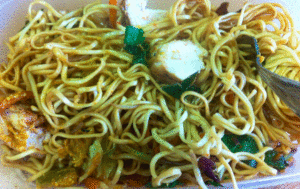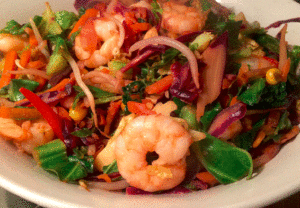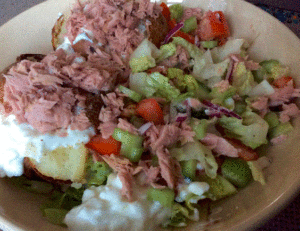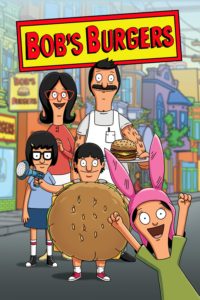A Lecture on University Lectures by Dr Rob Leftunders
Attending lectures requires a note taking strategy. During lectures there will be lots of information and data to take in. Writing good lecture notes is a skill which will help organise and coordinate your learning.
You may already have developed your own note taking system and style from your A-Levels but if you don’t know how to take and housekeep your student notes it will make lectures difficult and more painful for you.
Lectures will often be the introduction to a topic and define key things you need to learn. In my first year I was worried I wasn’t going to be able to keep up or that I wasn’t good enough to take all the information in compared to fellow students on my course. If you feel this way too than meet up and speak with your lecturer for a chat. They will be able to offer some guidance to ease your worries and put your mind at rest.
Attending university lectures and sorting out your timetable of student life takes some disciple. You need to be prepared for every lecture to get the most out of them. I know some of them will want to send you to sleep, certain topics of your degree are more exciting than others.
Preparing for lectures and going back to it can be stressful after the holiday fun finishes and you’ve scrambled to write your essays and complete your reading lists. This is the time to sort out your bag file away last year’s work, buy any new stationary and organise your timetables.
Your reading lists can explain and help your understand the subject matter before attending lectures however don’t go rushing off ahead of yourself. After a few hours reading you can evaluate a topic and form your own opinion.
The best preparation for a lecture and note taking is a good night’s sleep so you are alert and ready to pay attention to what your professors have to say.
Studying Note Taking Skills –
I prefer taking hand written notes to using electric tablets, apps or recording devices. Writing down important facts and figures reinforces education. Good note taking techniques help people remember things, which comes in useful for exams and taking minutes in meetings.
The hardest thing about note taking is you can be unsure what to actually make notes of and record down. Your lecture notes don’t have to record and document everything. You aren’t a court reporter. If you try and capture everything and transcribe exactly what is said you’re not going to learn anything and when you review your lectures notes they will be a nightmare to understand.
Listening to a lecture is one thing, actually listening and taking it in is another. You’ll need to make sure your student notes make sense and you can comprehend what you’ve written down after a lecture. Too much note-taking can actually distract you from listening to the lecture content.
Focus on the important stuff to note down. What information and material is of most use to pass your exams, write your essays and useful for your project work?
Only make notes when they is something new to learn. Pay attention to key facts, dates, names, keywords, definitions, diagrams/pictures, list any pros and cons and the lecturers evidence or summary and further resources that will help. These are the most important. Also do you agree with what is been said? Do you see it from another point of view? Does it raise more questions or issues? What debates and discussion does it generate?
These questions can help with your research and understanding later. Note down your own thoughts and ideas on the topic.
I suggest you note down anything the lecturer puts on the board and any material and reading list you need to follow up with. If you are struggling to note things down or miss anything the important things will usually be on the board or printed out for reference.
Leave plenty of space for adding extra notes and further information. Often a lecturer will return back to an area so leave some room to fit a bit more in or jot down your own points of interest.
Note-Taking Techniques:
- Avoid transcribing everything down only record the definitions and important facts/figures.
- Listen and pay attention and summarise the key points of the lecture.
- Always make notes on things the lecture has written down on the board and further study and reading/research material.
- Use visual learning like drawing diagrams, circles or use arrows to link-up topic concepts and relationships in the material.
- Space out your notes for extra information to add on and keep your material in a logically sequence.
- Record material that may rise it’s head in any assignments, exams and projects.
- Engage in the lecture and ask questions to clarify things.
The main thing with noting making is you develop a method of taking notes that works for you so the lecture material sinks in and your notation is easy to follow. Use bullet points, colour, highlight or underline keywords and definitions, draw flowcharts, mind maps, Spider grams – anything that reinforces the meaning, connects and links ideas and put your study notes in order.
Without structure in your lecture notes you find it difficult to be productive and make use of your time.
After the Lecture –
What have you just learned? A good habit is to go over your note taking afterwards to help you retain the lesson. After each lecture go over your notes and review them to make sure they make sense and pick up on anything you don’t fully understand for extra read-up. If you don’t you are more likely to forget what each lecture is trying to teach you.
After a lecture is the time to test what you have just learned and get feedback from others. Talk with friends, compare notes and hold study groups with other students to help you feed ideas and concepts off each other. Study groups can help reinforce what you learned from a lecture. Studying with someone else or in a group can help motive you and offers a chance to go over and review your lecture notes so some of the keywords and theories actually stick. Hopefully your brain will retain some of the key material ready for revision.
An important part of building your own study guide is getting organised and planning in advance. Top students make the most of their notes and will save revision time by conducting note reviews soon after a lecture.
Studying in short bursts is better than trying to cram all your learning and revision in over a few days. After a few hours you tend to lose focus so break up your study guide. Creating your own study guide and learning routine will help you absorb your course material a lot easier.
Having a filing system for your lecture notes is vital for revising and reviewing study material. If your student note taking isn’t brilliant then reading up and taking notes from on reading material is ideal. Do the reading in advance and get the books out of the library early. Leave it too later and it can be harder and more expensive to track down a book.
Lots of learning is done outside of the lecture rooms. You can only really learn by doing and observing the world. If you are taking a technical, language or practical subject you won’t find the answers or learning experience inside text books or research. To get good at sometime you have to practise and apply what you learn beyond the learning environment and library.
Taking good notes is nice, the real test is applying the wisdom afterwards. Doing these things will make your note-taking and lecture time more beneficial.




